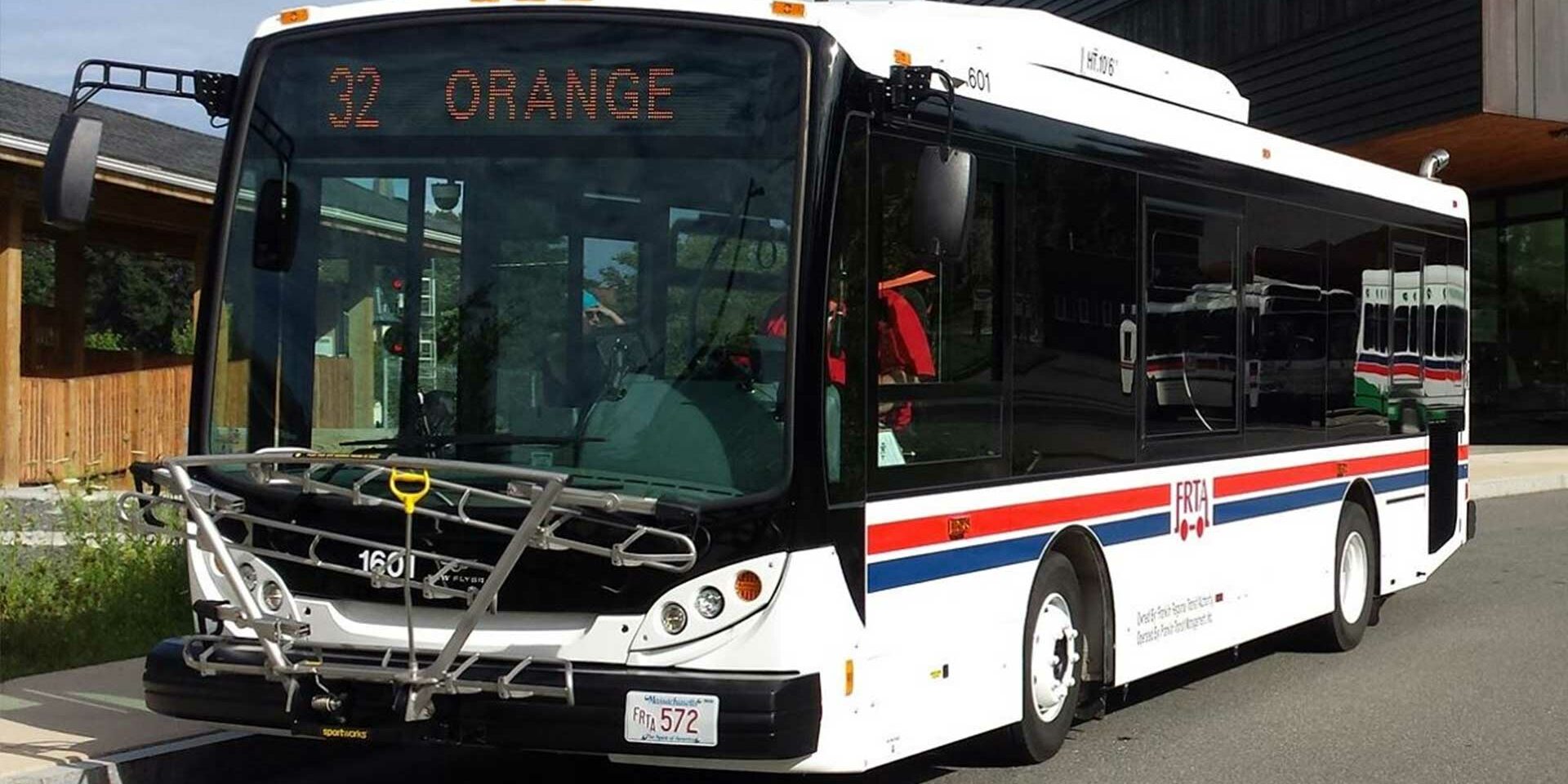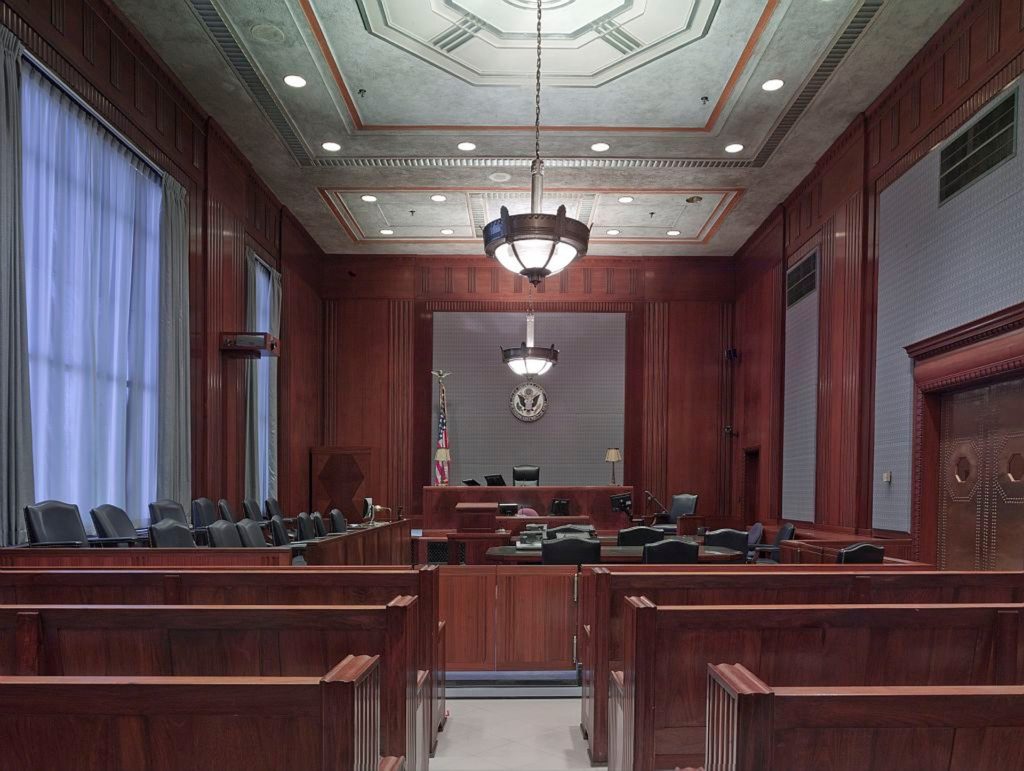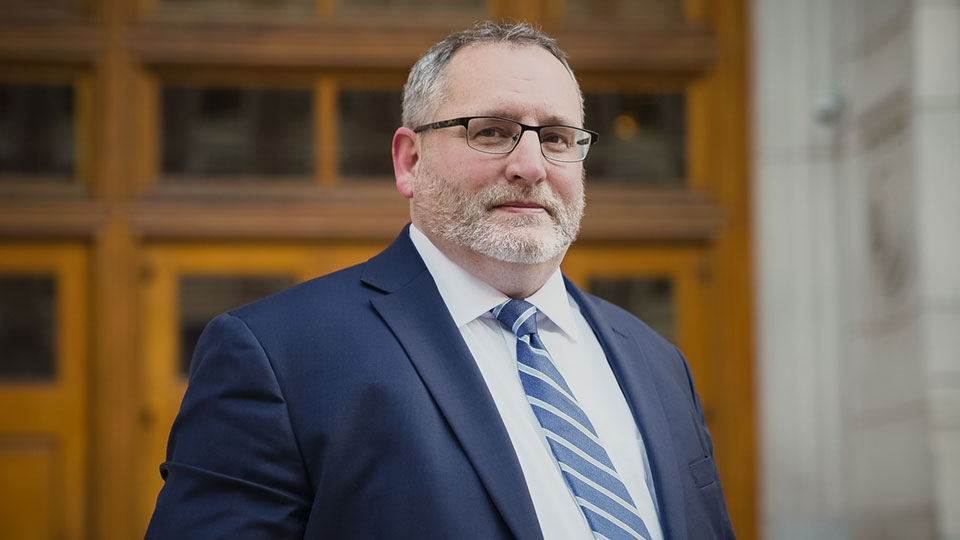FRTA Bus Accident Lawyers

The Franklin Regional Transit Authority (FRTA) is a regional transit authority that provides public transportation principally to Franklin County and the North Quabbin region of Massachusetts. Unlike the MBTA, FRTA serves only these areas. The FRTA is based in Greenfield, Massachusetts. This is a relatively smaller transit authority, with only eight fixed routes, eight buses, and thirty-two vans making up its fleet. Daily ridership is only 155,000 annual passengers, which is very small in proportion to the larger regional transit authorities in the state. The FRTA is a political subdivision of the Commonwealth of Massachusetts and is funded by federal, state, and local governments, as well as other revenues. Additionally, the towns that are served by the FRTA pay an assessed amount based on the number of miles served in each town.
The Authority is given general responsibility to develop, finance, and contract for the operation of transportation facilities and services within its transit area. The day-to-day affairs of the Authority are managed by the Administrator, who is appointed by the Advisory Board. According to statute, regional transit authorities cannot operate service directly but rather must contract with private operators for the provision of public bus transportation service. The FRTA contracts with Franklin Transit Management, Inc. for the fixed routes and several Demand Response service areas. Due to the rural area served, the FRTA also contracts with several Councils on Aging to provide additional Demand Response transportation. The private company overseeing the bus system administration, however, is Franklin Transit Management.
Research does not uncover many recent bus accidents involving the FRTA; however, there is one notable one in which a bus driver purposely veered off the road and crashed his bus into a building while attempting to hit two pedestrians. This case is notable because, unlike a normal situation where the bus company would be held liable for the actions of its employee, this may constitute a case where the bus driver as an employee was acting so far beyond the scope of his employment and out of the control of his employer that the bus company may possibly be shielded from vicarious liability. However, by possibly failing to properly screen the employee prior to hiring him, liability may still be imposed.
Bus Accidents Generally
Bus accidents are a more dangerous threat than many people realize and are more likely than other vehicular accidents to cause serious and sometimes fatal injuries. When a bus hits a car, or a pedestrian, the size and weight difference between the two are an obvious reason why bus accidents often cause so much damage. The fact of the matter is that bus accidents are a notable cause for concern when traversing the roads of Massachusetts, or choosing to ride on a public transportation. An information brief issued in 2012 by the National Transportation Safety Board (NTSB) noted that there were more than 250 fatalities and over 20,000 injuries in accidents involving buses in 2009. According to Federal Motor Carrier Safety Administration (FMCSA) data, 5,096 large buses and trucks were involved in fatal crashes during 2018. Transit buses accounted for 35% of these fatal crashes. Considering the volume of transit authority vehicles serving over 1 million passengers with over 390,000 bus trips daily throughout the greater Boston area alone, it’s no surprise that these buses are involved in a large number of vehicular accidents every year.
Bus accidents happen for a variety of reasons. Some common examples include:
- Driver error
- Driver Fatigue
- Driver’s Inebriation
- Bus Maintenance
- Mechanical Issues
- Road Design/Conditions
- Weather Conditions
- Unforeseeable negligent driving acts by third parties.
Victims of public transit bus accidents are not always on the outside of the bus. In fact, it is very common for passengers riding on the bus to be injured as well. Riders of a public transit authority like the FRTA are entitled to a certain duty of care from those operating the buses, as the law mandates certain safety precautions and other measures to be taken by common carriers for the safety of their passengers.
Liability in Personal Injury Claims Caused by Bus Accidents
A bus company or public transit authority is a common carrier. A common carrier is an individual or business entity that is licensed to transport passengers for a fee. Every common carrier has a duty to follow certain rules to ensure the safety of its passengers. These duties include, but are not limited to:
- Safe, well-lit, unobstructed entries and exits
- Security where necessary
- Completing thorough background checks of drivers to ensure qualifications
- Adequate training for drivers
- Proper maintenance of buses and facilities
A common carrier is held to a higher standard of keeping their customers safe compared to other types of businesses. This is, in part, because of the inherently dangerous nature of the transportation industry. Transportation can involve risk, and these companies and entities have a duty to keep passengers safe.
If you are involved in an accident while riding on a public transit bus, depending on whose negligence was responsible for causing the accident, you could have a claim for compensation against the public transit authority. However, such claims are governed by the Massachusetts Tort Claims Act (MTCA) which has special procedures and time limits that must be strictly adhered to. Under the MTCA, you need to file written notice of the claim, referred to as a presentment letter, within two years of the incident. Also, the MTCA has strict requirements as to what this presentment letter must include. If you fail to adhere to the strict requirements of the statute, within the specified time limit, your case will be over. Therefore, unlike other types of vehicular accidents, it is especially important to retain experienced legal representation in these cases.
There can also be certain circumstances that open the door to potential claims against others (not just the FRTA). Some examples of other individuals and entities that may be potentially liable for the damages caused by a bus accident (if it is found that their negligence or error was a predominant or contributing cause of the accident) include:
- The Private Bus Company being contracted by the FRTA: The bus company is responsible for maintaining the vehicles, driver training and screening, and all transit and transit authority operations. If a failure of any of these functions caused the accident then the private bus company, along with the FRTA, could be liable.
- The Bus Driver: Sometimes, in cases involving things such as intentional acts by the bus driver, it may be possible to expose the bus driver to personal liability – but this is rare. The unique circumstances of a crash, and the exact nature of the driver’s behavior, will determine whether the bus driver would be added as a defendant to a personal injury claim resulting from a bus crash.
- Other Drivers or Road Users: If the collision was the fault of another driver, that person (the other driver) would be liable for your damages. You would need to pursue a claim against that driver, just as you would for any other car accident.
- Bus Manufacturer or Manufacturer of Bus Parts: A bus might have components made by several different companies. So, if the accident happened because of brake failure, steering failure, or some other mechanical issue, the bus manufacturer and the manufacturer of the failed system could both be liable. This relates back to products liability and liability rules regarding negligent manufacturing of a product that creates an issue with the product's ability to properly function and an accident causing injuries results.
- Maintenance Provider: Sometimes, a bus company hires other companies to provide routine maintenance on the bus fleet. If a maintenance provider failed to correctly maintain a bus in a way that resulted in a crash, the provider could be liable.
- Other Government, State or Municipal Entities: For example, work being done by a town’s department of public works that contributes to an accident, or improperly maintained roads which can create potential liability for the city or state departments responsible for said roads if the improperly maintained conditions lead to an injurious accident.
Regardless of who the parties involved may be, these types of lawsuits are very difficult and riddled with potential traps. Due to the strict requirements of the MTCA, these cases are far more complicated than an average negligence claim. It is especially important to have experienced legal counsel on your side when attempting to bring a claim resulting from a FRTA accident.
Because of the complexities involved in these types of cases, don’t try to do it alone! If you think there’s ever a type of legal claim that you can handle on your own, this isn’t it. There are too many special rules and procedures involved (many of which there is not time or room for in this brief article). In fact, due to their complexity there are many personal injury lawyers who will either not take these types of cases at all, or who refer them out to more experienced law firms like mine for handling. Make sure you have an attorney on your side who knows the intricacies involved with public transportation cases.
Call Us Today to Speak with an FRTA Accident Lawyer
If you were injured in a bus accident, either riding the FRTA or as a pedestrian or occupant in another vehicle, you should contact a lawyer experienced with these types of cases as soon as possible. At the Law Offices of Christopher Sullivan P.C., we have over one hundred years of combined experience handling public transit cases and we have recovered over 25 million dollars for our clients through favorable settlements and jury verdicts. Initial consultations are always free and you pay absolutely nothing unless we obtain a financial award on your behalf. If you have been injured at the hands of a public transit agency, contact us today either online or by calling (617) 357-8600. Let us help you to navigate the complicated legal hurdles involved with these types of cases and get you the financial compensation you deserve.
Contact Us
Free Consultation
Call (617) 357-8600
Prefer to schedule a call in advance? Pick a date and time that work best for you with our appointment scheduler.









